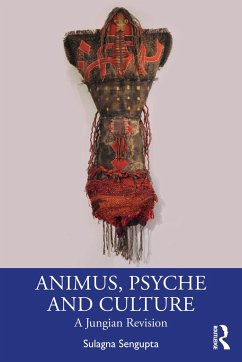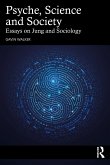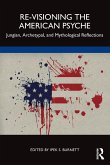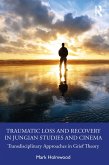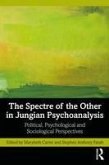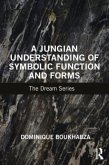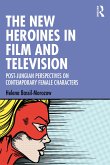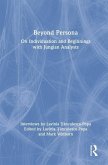Animus, Psyche and Culture takes Carl Jung's concept of contra-sexual psyche and locates it within the cultural expanse of India, using ethnographic narratives, history, religion, myth, films, biographical extracts to deliberate on the feminine in psychological, social and archetypal realms.
Jung's concept of unconscious contra-sexuality, based on notions of feminine Eros and masculine Logos, was pioneering in his time, but took masculine and feminine to be fixed and essential attributes of gender in the psyche. This book explores the relevance of the animus, examining its rationale in current contexts of gender fluidity. Taking off from Post Jungian critiques, it proposes an exposition of the animus in history, social and religious phenomena, theories of knowledge, psychoid archetype and synchronicity, to grasp its nuances in diverse cultural worlds. This study re-envisions the notion of animus keeping in mind the intricacies of feminine subjectivity and the diversity of cultural worlds where depth psychological ideas are currently emerging.
A remarkable reworking of Jungian ideas, this well-researched and important new book will be an insightful read for Jungian analysts and scholars with an interest in cultural and gender studies.
Jung's concept of unconscious contra-sexuality, based on notions of feminine Eros and masculine Logos, was pioneering in his time, but took masculine and feminine to be fixed and essential attributes of gender in the psyche. This book explores the relevance of the animus, examining its rationale in current contexts of gender fluidity. Taking off from Post Jungian critiques, it proposes an exposition of the animus in history, social and religious phenomena, theories of knowledge, psychoid archetype and synchronicity, to grasp its nuances in diverse cultural worlds. This study re-envisions the notion of animus keeping in mind the intricacies of feminine subjectivity and the diversity of cultural worlds where depth psychological ideas are currently emerging.
A remarkable reworking of Jungian ideas, this well-researched and important new book will be an insightful read for Jungian analysts and scholars with an interest in cultural and gender studies.
"Simply in a league of its own! Building on her ground-breaking Jung in India, Sengupta makes a stellar contribution to the cultural revision - and hence renaissance - of Jungian theory and practice. It is one of the most important de-colonisations in the entire field of depth psychology and psychoanalysis. Everyone will benefit, in the West too. Of particular importance is the interweave of mythology and contemporary crises in India. After this work, we cannot look at contra-sexuality, and especially at the animus, in an unchanged way."
Professor Andrew Samuels, Author of The Political Psyche
"Through her incisive and compassionate twenty-first century feminist lens, Sulagna Sengupta's Animus, Psyche and Culture, takes C. G. Jung's controversial masculine other and makes it into the most searching and revelatory lens on culture and gender in India. This is Transdisciplinary Jungian research at its most creative and empowering. Animus, Psyche and Culture blends depth psychology, Jung, post-Jungian scholarship, myth, film, religion and history for astonishing insights that put the animus forefront in thinking about culture and psyche. The book provides a vivid and compelling argument evaluating the tangle of gender, power, vision and individuation."
Susan Rowland (PhD) is core faculty at Pacifica Graduate Institute and author of Jung: A Feminist Revision (2002), and with Joel Weishaus, Jungian Arts-Based Research and the Nuclear Enchantment of New Mexico (2021).
"A remarkable reworking and re-visioning of Jung's views on the contra-sexual other in the psyche, especially with regards to the experience of women. This is a work for the 21st century, advancing analytical psychology through expertly chosen personal and cultural reflections on patterns of gendering. Sulagna Sengupta, an acclaimed cultural historian in Jungian studies, here opens up fertile paths for exploring gender fluidity while carefully respecting and articulating cultural differences. This well-researched text is a virtual banquet of Jungian and post-Jungian thought, contemporizing and bringing renewed relevance to a subject that had been submerged by past critiques. The presentation is richly storied and emancipatory, pioneering transdisciplinary principles in the study of culture and unconscious processes."
Joe Cambray, PhD, Past-President/CEO, Pacifica Graduate Institute.
"Sulagna Sengupta offers a rich phenomenological description of the animus in its many aspects, through a series of narratives in the context of Indian culture. She rightly underlines the importance of culture in the formation of the contra-sexual other. In doing so, she corrects the tendency to consider the animus one-sidedly as a merely subjective inner factor with fixed meanings, that reflect traditional gender assumptions. Through a discussion of the ideas of post-Jungian authors and Jung's own position on the animus, Sengupta offers a stimulating and convincing revision of Jung's views. The animus appears as an individuating life-force, which animates feminine journeys and facilitates creative endeavors in environmental activism, science, invention, and writing."
Paul Brutsche, PhD, Author of Creativity- Patterns of Creative Imagination as Seen Through Art.
Professor Andrew Samuels, Author of The Political Psyche
"Through her incisive and compassionate twenty-first century feminist lens, Sulagna Sengupta's Animus, Psyche and Culture, takes C. G. Jung's controversial masculine other and makes it into the most searching and revelatory lens on culture and gender in India. This is Transdisciplinary Jungian research at its most creative and empowering. Animus, Psyche and Culture blends depth psychology, Jung, post-Jungian scholarship, myth, film, religion and history for astonishing insights that put the animus forefront in thinking about culture and psyche. The book provides a vivid and compelling argument evaluating the tangle of gender, power, vision and individuation."
Susan Rowland (PhD) is core faculty at Pacifica Graduate Institute and author of Jung: A Feminist Revision (2002), and with Joel Weishaus, Jungian Arts-Based Research and the Nuclear Enchantment of New Mexico (2021).
"A remarkable reworking and re-visioning of Jung's views on the contra-sexual other in the psyche, especially with regards to the experience of women. This is a work for the 21st century, advancing analytical psychology through expertly chosen personal and cultural reflections on patterns of gendering. Sulagna Sengupta, an acclaimed cultural historian in Jungian studies, here opens up fertile paths for exploring gender fluidity while carefully respecting and articulating cultural differences. This well-researched text is a virtual banquet of Jungian and post-Jungian thought, contemporizing and bringing renewed relevance to a subject that had been submerged by past critiques. The presentation is richly storied and emancipatory, pioneering transdisciplinary principles in the study of culture and unconscious processes."
Joe Cambray, PhD, Past-President/CEO, Pacifica Graduate Institute.
"Sulagna Sengupta offers a rich phenomenological description of the animus in its many aspects, through a series of narratives in the context of Indian culture. She rightly underlines the importance of culture in the formation of the contra-sexual other. In doing so, she corrects the tendency to consider the animus one-sidedly as a merely subjective inner factor with fixed meanings, that reflect traditional gender assumptions. Through a discussion of the ideas of post-Jungian authors and Jung's own position on the animus, Sengupta offers a stimulating and convincing revision of Jung's views. The animus appears as an individuating life-force, which animates feminine journeys and facilitates creative endeavors in environmental activism, science, invention, and writing."
Paul Brutsche, PhD, Author of Creativity- Patterns of Creative Imagination as Seen Through Art.

